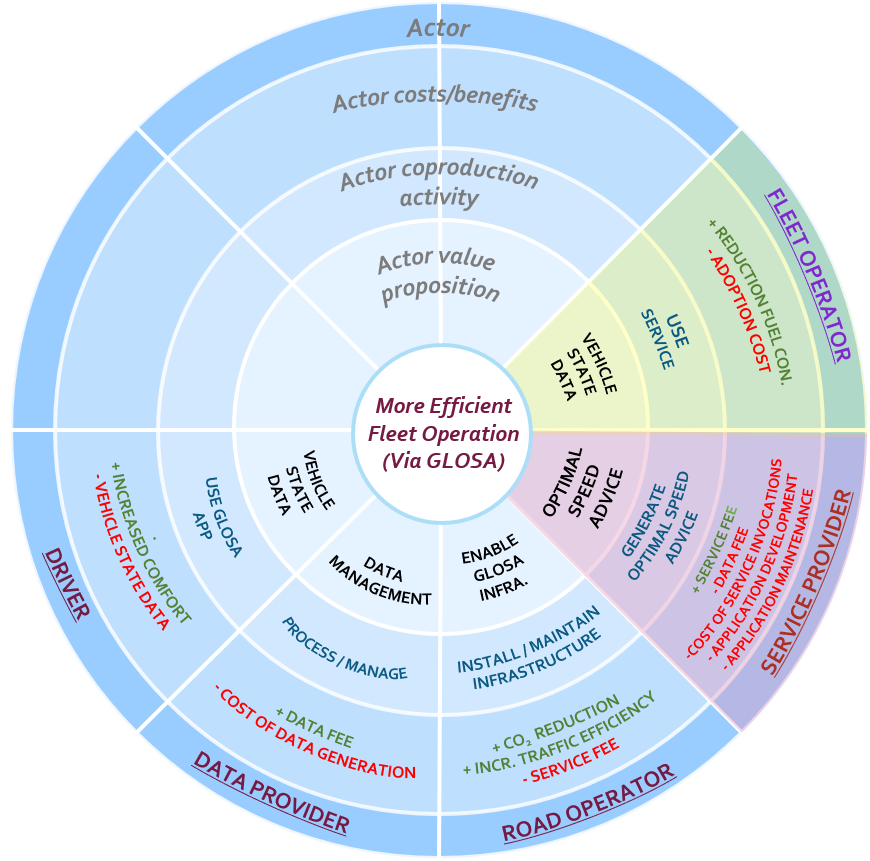Business scenario
Green light optimal speed advisory (GLOSA) is a technology that provides drivers a speed advice when they approach to a signalized intersection. This advice may involve maintaining actual speed, slowing down, or adapting to a specific speed, allowing the user to reach a green light and minimize fuel consumption and emissions. If a green traffic light cannot be reached in time, GLOSA may also provide information on time-to-green when the vehicle has stopped. Application of GLOSA takes advantage of real-time traffic and infrastructure information to communicate to user an ideal advice. The service enables the user to experience more eco-friendly and comfortable driving, as a more regular speed can be maintained, whereas unnecessary braking or stopping can be reduced, which in turn reduces fuel use. It can provide a more eco-friendly and comfortable driving experience for vehicle drivers.
Business model blueprint
In the presented business model blueprint, the service provider offers the GLOSA service with the aim to improve the flow of traffic and reduce pollution due to fuel use, with the expectations that the drivers, who are informed of the optimal traffic behavior, can use this information to improve decision making with regards to their speed. The more vehicles adopt the service, the more benefits can be experienced in the traffic flow and reduction of fuel use. The service provider ensures that the required infrastructure to support GLOSA is deployed and operable and takes charges of its subsequent maintenance. To stimulate the service, the road operator compensates the service provider for the operation of the service and to cover the costs incurred. In turn, the road operator through sustained and stimulated use of the service benefits through a reduction in CO2-emissions and an improved traffic flow and efficiency.
The service solution proposed above is catered to fleet operators (e.g., logistics & transportation companies, representing truck or taxi drivers), which through use of the service benefit from reduced fuel consumptions over their entire fleet. The drivers can use the service (offered on a software application installed either an on-board unit or smartphone application) that tracks the speed and location of the user and integrates this data with real-time traffic data to provide the best cruising advice. The data provider included for the business model is responsible for collecting and transforming the raw data collected by the application into usable data elements, which is consequently transferred to the service provider. It receives a fee for transforming the data also to cover the operational costs that are incurred in doing so.
Business model viability
The effects on (the reduction) of fuel consumption for the fleet operator (as a result the individual taxi drivers) are considerable if busy, highly traversed streets are supported through GLOSA services, meaning that taxi drivers frequently can benefit from (information provisioning on) maintaining a balanced speed. Analogously, these effects can also be expected for the road operator, benefitting from decreased pollution and increased traffic efficiency. Considering that the average effects of GLOSA on fuel consumption are relatively small, a large user base and wide scale deployment of the service should be considered for the business model to be viable.
